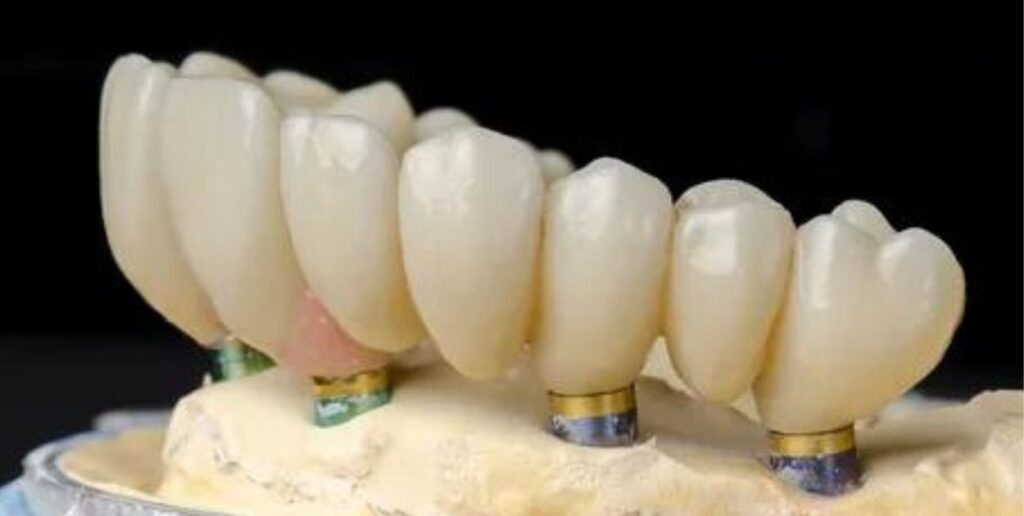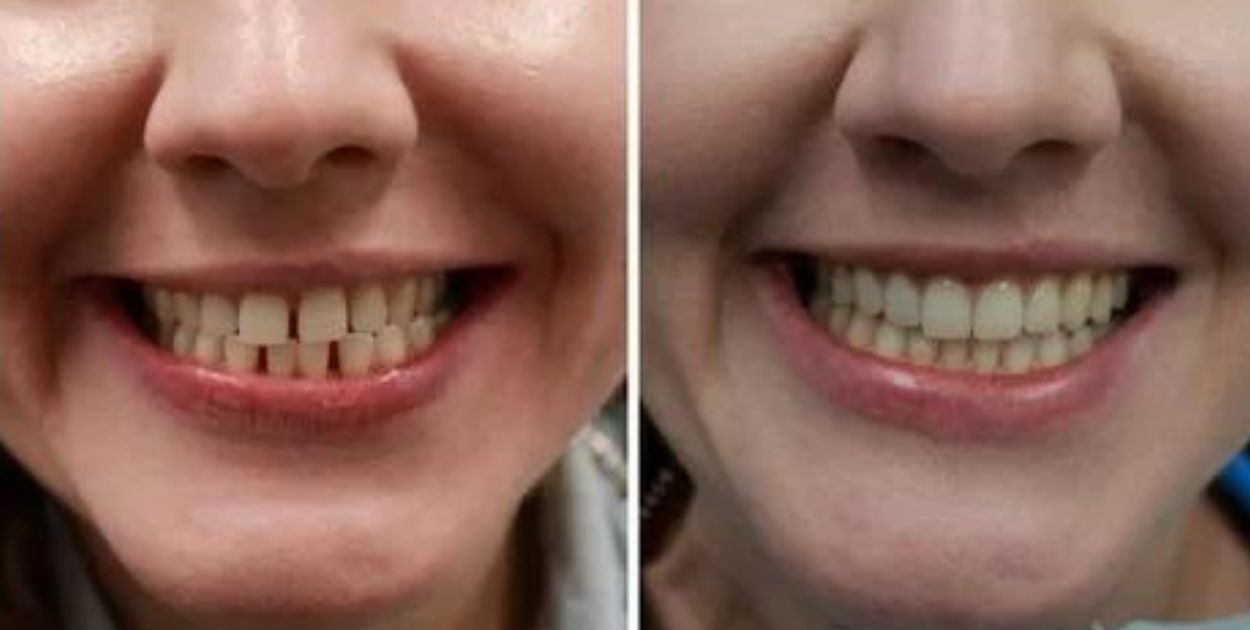Dentures stop gum disease refers to the idea that wearing dentures can help prevent or alleviate gum disease. Dentures, artificial teeth replacements, can improve oral hygiene by supporting proper gum and tooth alignment, reducing the risk of gum issues.
Curious about improving your oral health? Ever wondered Will getting dentures stop gum disease? Discover the key to a healthier smile and bid farewell to gum issues. Take the first step towards optimal dental care – find out how dentures could be the game-changer for your gums!
Getting dentures does not stop gum disease. While dentures replace missing teeth, they don’t address the underlying gum issues. Proper oral hygiene and regular dental check-ups remain crucial to prevent and manage gum disease, even with dentures.
What Is Gum Disease?
Gum disease, also known as periodontal disease, is a common oral health issue. It occurs when bacteria in dental plaque cause inflammation in the gums. Early symptoms include redness, swelling, and bleeding during brushing or flossing.
If left untreated, gum disease can progress, leading to more severe consequences such as gum recession and tooth loss. Regular dental check-ups, proper oral hygiene, and a healthy lifestyle can help prevent and manage gum disease. Taking these steps ensures a brighter and healthier smile in the long run.
Gum disease may manifest in several ways
- Gingivitis: The initial stage of gum disease, causing redness and inflammation of the gums.
- Periodontitis: Advanced gum disease where the infection progresses, leading to potential tooth and bone loss.
- Bleeding Gums: One of the early signs of gum disease, often noticed during brushing or flossing.
- Halitosis (Bad Breath): Bacteria associated with gum disease can contribute to persistent bad breath.
- Gum Recession: As gum disease advances, gums may pull away from the teeth, exposing tooth roots.
- Tooth Mobility: In severe cases, gum disease can lead to loose teeth and difficulty in chewing. Regular dental care helps prevent and manage these gum diseases.
Can I Get Dentures If I Have Gum Disease?
If you have gum disease, dentures may still be an option for you. Dentures are artificial teeth that can replace your natural teeth if they are damaged or lost. Your dentist will assess the condition of your gums and teeth to determine if dentures are a suitable solution.
During the examination, your dentist will consider the severity of your gum disease and its impact on your overall oral health. If dentures are recommended, the dentist will discuss the different types available and create a treatment plan tailored to your specific needs.
It’s important to maintain good oral hygiene even with dentures to prevent further complications and ensure their longevity. Regular check-ups with your dentist will help monitor the health of your gums and the fit of your dentures, ensuring a comfortable and functional solution for your dental needs.
Will Getting Dentures Stop Gum Disease?
Getting dentures can help manage gum disease. Dentures replace missing teeth and create a smoother surface that is easier to clean. This reduces the chances of plaque buildup, a major contributor to gum disease.
Regular cleaning of dentures is essential. Proper oral hygiene, including cleaning your dentures and gums, can prevent the progression of gum disease. So, while Affordable Dentures Accept won’t entirely stop gum disease, they can play a crucial role in its management when combined with good oral care practices.
Gum Care After Dentures
Taking care of your gums after getting dentures is crucial for maintaining oral health. Regularly clean your dentures with a soft-bristled brush to remove food particles and plaque. Gently massage your gums with a soft toothbrush to stimulate blood circulation and prevent irritation.
Use an antiseptic mouthwash to keep your mouth bacteria-free and avoid gum infections. Stay consistent with your oral hygiene routine to ensure the longevity of your dentures and promote overall gum health. Remember, a healthy mouth leads to a confident smile.
In addition to cleaning, consider scheduling regular dental check-ups to address any issues promptly. Your dentist can provide guidance on proper gum care techniques and detect any potential problems early on. By prioritizing gum care, you can enjoy the benefits of your dentures while maintaining a healthy and happy smile.
Are Implant-Supported Dentures a Treatment Possibility?

Implant-supported dentures offer a viable solution for individuals experiencing tooth loss. This treatment involves attaching dentures to dental implants, providing a secure and stable fit. Unlike traditional dentures, which may shift or loosen, implant-supported dentures enhance chewing efficiency and overall comfort.
Patients considering this option should consult their dentist to determine if they are suitable candidates for implant-supported dentures. The dentist will assess factors such as jawbone health and overall oral condition to ensure the success of this treatment.
Can You Get Dentures If You Have No Gums
Getting dentures without gums is not possible. Gums provide essential support for dentures, helping them stay in place while chewing and talking. If someone has lost their gums, alternative dental solutions like implants or bridges may be explored, but traditional dentures rely on the presence of gums for stability.
Dentures require gums for proper function. If gums are absent, other dental options should be considered, and a dentist can provide guidance on suitable alternatives like implants or bridges.
How To Prevent Worsening Gum Disease

To prevent worsening gum disease, it’s crucial to maintain good oral hygiene habits. Brush your teeth twice daily using a fluoride toothpaste and a soft-bristled brush. Floss between your teeth to remove plaque and debris that your toothbrush may miss.
Regular dental check-ups are essential in preventing gum disease progression. Schedule dental visits at least twice a year for professional cleanings and examinations. If you notice any signs of gum disease, such as bleeding or swollen gums, consult your dentist promptly for appropriate treatment.
Periodontal Therapy
Periodontal therapy focuses on treating gum diseases and maintaining oral health. Dental professionals use various methods, such as scaling and root planing, to remove plaque and tartar from the teeth and roots. Regular periodontal check-ups are essential to prevent and address issues related to the gums, ensuring a healthy smile.
Dentures are artificial teeth replacements that help restore a person’s ability to chew and speak. These removable prosthetics are custom-made to fit comfortably in the mouth.
Dentures are an effective solution for individuals who have lost some or all of their natural teeth, providing both functional and aesthetic benefits. Regular cleaning and proper care contribute to the longevity and effectiveness of dentures, ensuring a confident and comfortable oral experience.
Properly Cleaning Your Dentures
To clean dentures effectively, first, remove them from your mouth. Use a soft-bristle toothbrush and mild soap or denture cleaner. Scrub gently to remove food particles and plaque. Rinse thoroughly with warm water.
Soak your dentures in a denture-cleaning solution overnight. This helps eliminate stubborn stains and bacteria. Remember to brush your gums and tongue with a soft toothbrush to maintain overall oral hygiene. Regular cleaning ensures your dentures stay fresh and comfortable for daily use.
Home care
Home care dentures are essential for maintaining oral health. Regular cleaning is crucial to prevent plaque and bacteria buildup. Use a soft brush and mild soap to clean dentures daily, and store them in water when not in use.
Scheduling regular check-ups with a dentist is important. Professionals can ensure the dentures fit well and make any necessary adjustments. Following these simple steps ensures the longevity of home care dentures and contributes to a healthy smile.
Addressing Dentures and Gum Disease
Dentures and gum disease are common dental issues. Dentures, removable artificial teeth, are a solution for people with missing natural teeth. Regular cleaning of dentures is crucial to prevent problems like bad breath and infections.
Gum disease, also known as periodontal disease, affects the tissues surrounding the teeth. Brushing and flossing daily help in preventing gum disease. Regular dental check-ups are essential to address any issues with dentures and ensure overall oral health. Taking these steps actively promotes a healthier smile.
Partial Dentures And Periodontal Disease
Here’s a simple table about “Partial Dentures and Periodontal Disease
| Aspect | Partial Dentures | Periodontal Disease |
| Definition | Removable artificial teeth for missing ones | Inflammation of the tissues surrounding teeth |
| Prevention | Clean dentures regularly | Daily brushing and flossing to avoid infection |
| Oral Hygiene | Brush dentures and gums gently | Maintain good oral hygiene practices |
| Symptoms | Discomfort, sore spots | Swollen gums, bleeding, bad breath |
| Importance of Check-ups | Regular visits to address fit and comfort | Routine dental check-ups to monitor gum health |
| Impact on Overall Health | Aids in chewing and speaking | Periodontal health linked to overall well-being |
This is a basic table, and you may add more details based on your specific requirements or information available.
Frequently Asked Question
Do gums shrink with dentures?
No, gums do not shrink with dentures; however, they may undergo changes in shape and size over time due to natural factors.
How can I save my teeth from gum disease?
Practice good oral hygiene by brushing and flossing regularly to prevent gum disease and preserve your teeth.
Who Cannot get dentures?
People with certain oral health conditions or insufficient jawbone support may be unable to get dentures.
It’s possible to get dentures if I have gum disease?
The short answer is yes. In certain cases, the best way to prevent the advancement of gum disease is to remove all of the natural teeth and get dentures.
In this article, we’ll explain more about what gum disease is, how to keep it from worsening, and how dentures can help treat gum disease.
Conclusion
The question Will getting dentures stop gum disease prompts a nuanced consideration. While dentures themselves do not eradicate gum disease, proper oral hygiene remains crucial. Regular dental check-ups, diligent brushing, and flossing are essential to prevent and manage gum disease, even with the use of dentures.
The key lies in maintaining a proactive approach to oral health, acknowledging that dentures can enhance comfort and function but should not replace a comprehensive dental care routine. By combining the benefits of dentures with consistent oral hygiene practices, individuals can work towards minimizing the risk of gum disease and enjoying a healthier, happier smile.

